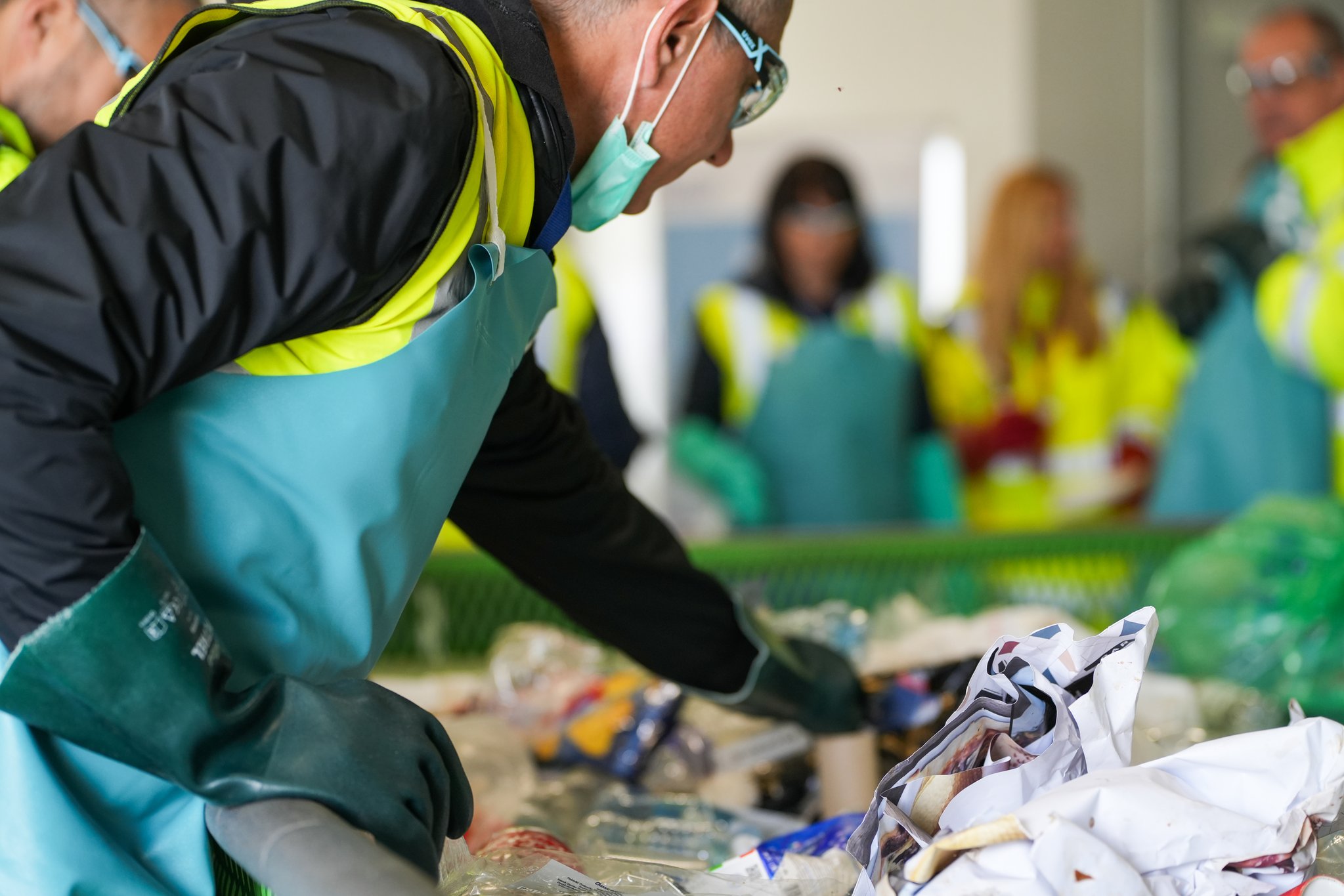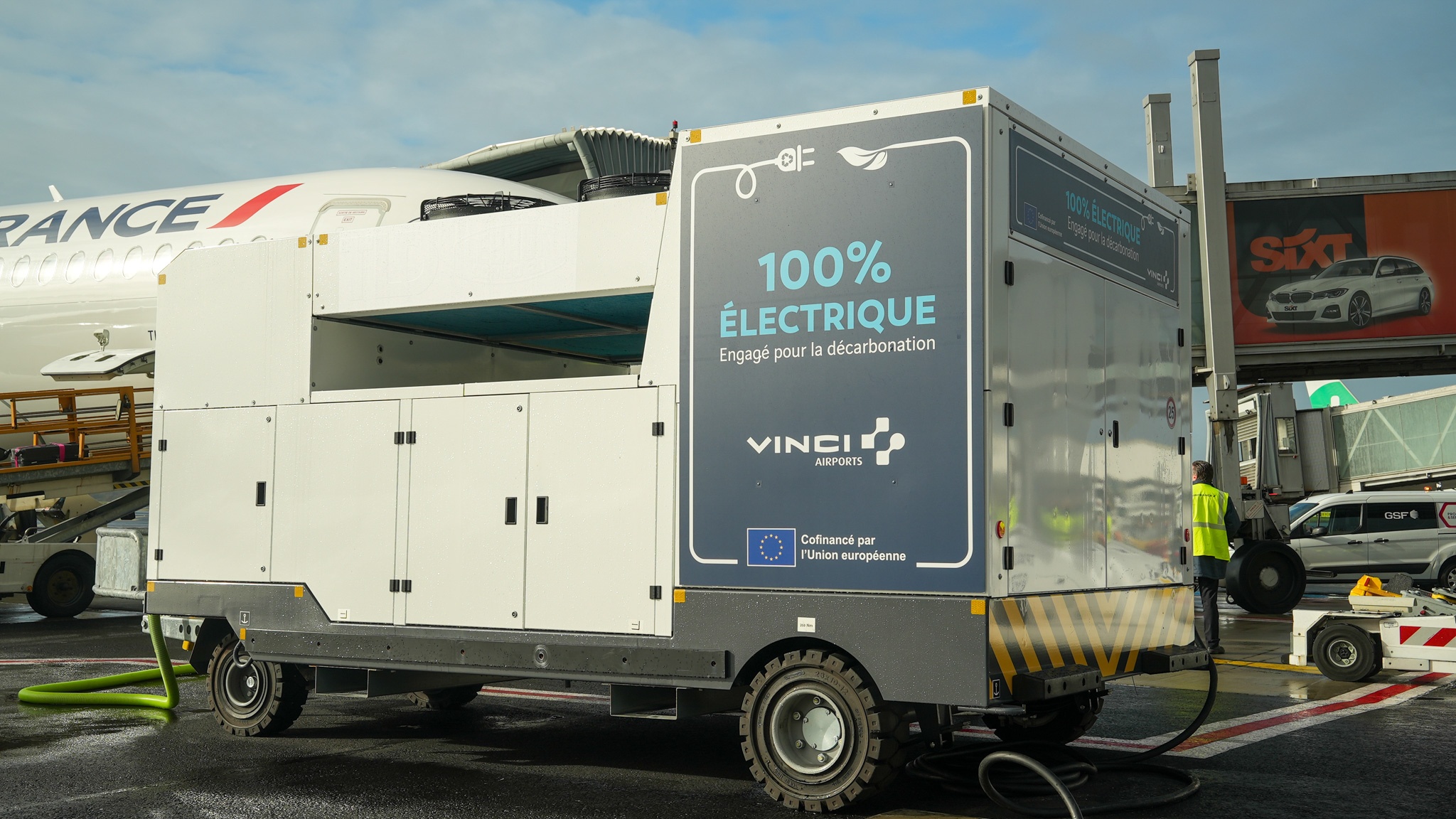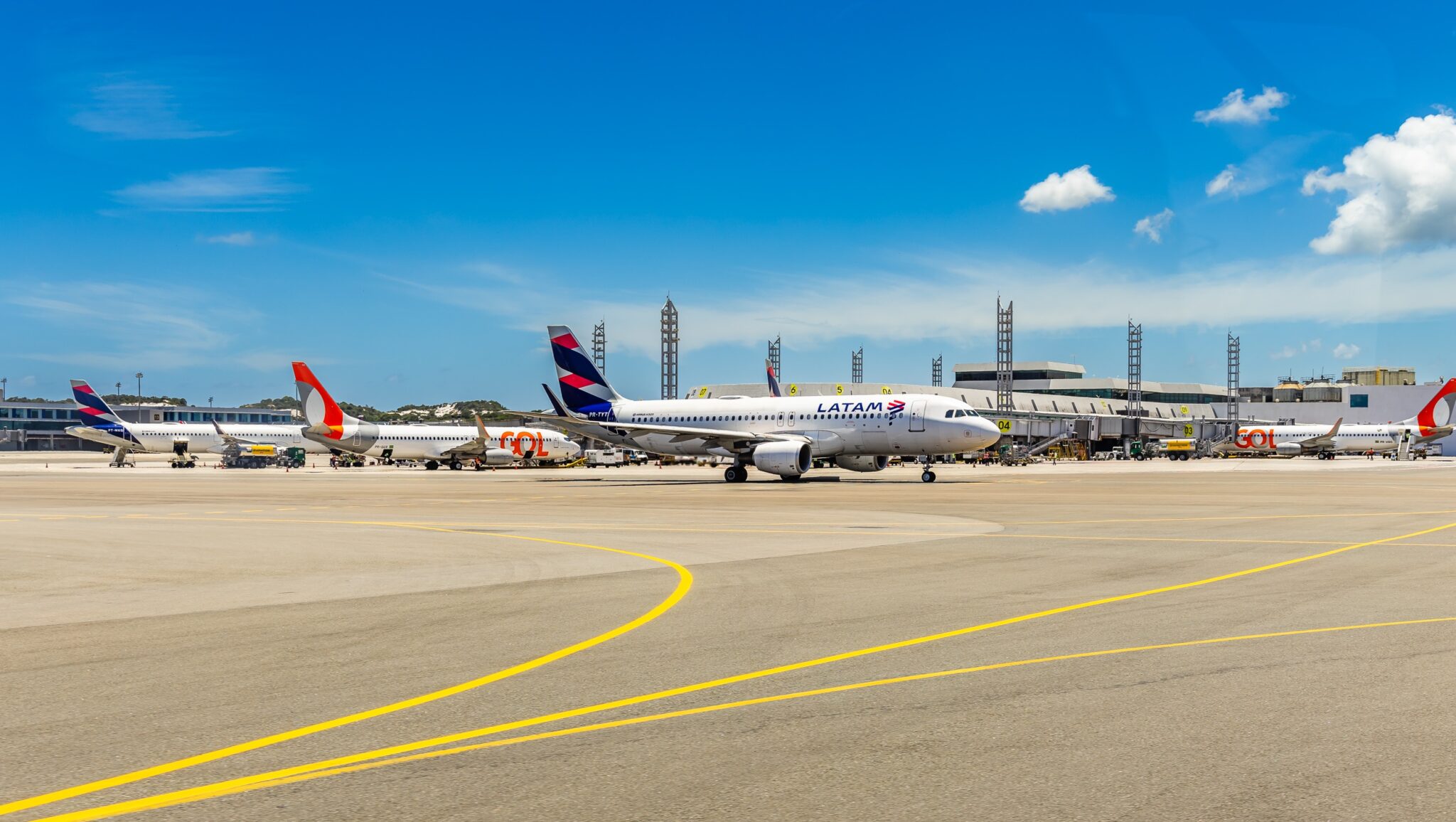Optimising resources thanks to circular economy
In line with VINCI Concessions approach, VINCI Airports has chosen to link up with the circular economies put in place throughout the VINCI Group. The aim is to minimise the carbon footprint of our operations by limiting the volume of raw materials extracted and more systematically reusing and recycling materials. We integrate a growing proportion of recycled materials in all the projects we manage. This principle also guides our action during the operation phase, as we have implemented an ambitious waste management policy.
Taking action on the field
To achieve this goal, we take action upstream to reduce the amount of waste we generate at source and anticipate how we can recycle it.
Reuse or recycle our waste: objective of 0 waste to landfill by 2030
Despite significant differences in the way, recycling systems are regulated in the different countries where it operates, VINCI Airports has set a unified goal for its entire network: to send zero waste to landfill by 2030.
We are working with our subcontractors to eliminate single-use plastics in our stores and restaurants. We also actively engage the public in our efforts, for example, by installing selective waste bins or implementing other innovative initiatives. For example, at Lyon-Saint Exupéry Airport, we have implemented a program to replace single-use plastics with reusable containers, while in Costa Rica, a waste collection campaign on the beaches near the airport is in full swing.
Downstream, we systematically recycle and reuse our waste, even when local channels are not sufficiently developed or do not exist.
VINCI Airports has built several world-class sorting centers in Salvador, Brazil, and the Dominican Republic, and has established inclusive innovation programs in Cambodia to integrate waste pickers into their waste management chain.



